Charles Pakana (Victorian Aboriginal News)
In early 2023, the Wurundjeri Woi-wurrung people were successful in regaining ownership of two significant pieces of art that had been created by noted Wurundjeri ngurungaeta Uncle William Barak and dating back to the 1890s. Uncle William, who began painting only in his 60s, is famous also for being in attendance when, as a young boy in 1835, he witnessed the signing of a document that is known infamously as the Batman Treaty. For this episode, we visited the State Library of Victoria in Melbourne, where an event was held to commemorate the return of these two significant pieces of art to the Wurundjeri people. We’re now joined by Wurundjeri Elder Uncle Ron Jones, who was instrumental in bringing these pieces back to the Wurundjeri people and also to the people of Australia. Uncle Ron, thanks for joining us on the podcast today.
Uncle Ron Jones:
It’s a great pleasure to be here.
Charles:
Unc, you were instrumental in this and I know that we’ve had a chat before. And you, while you’re happy about this, you’re actually disappointed that there’s not an opportunity to bring back more art pieces. And we’ll get to that in a minute. But tell us a bit about the auction itself, because it must have been a heart pounding time. Paint us a bit of a picture.
Uncle Ron:
Look, it was probably a month before the auction was due to happen. Me daughter Karen rang me and said Dad, there’s some of William Barak’s artifacts in auction so she googled Sotheby’s and she come across the catalogue. So there’s a fair bit of Victorian artifactual material over there. But we didn’t read right through. Yeah, William Barak’s. We only read through William Barak’s two items was the painting of women.
Charles:
In the corroboree or the…
Uncle Ron:
Well I’d say corroboree back in their days ceremony, right. It was the men that committed the or did the corroboree and the women did their dancing. And so when I think back and then the shield I thought no, we got to do something about it. This is going to be brought back home. This is our culture. This is our history.
Charles:
Now, you’ve already been through situations like this before, most famously, I think, in 2016 when one of the most significant pieces of all, which was just called ceremony,
Uncle Ron:
Ceremony
Charles:
Referred to loosely as the Bible for the Wurundjeri people, was lost.
Uncle Ron:
Lost.
Charles:
Because it was taken from Victoria up to NSW and sold.
Uncle Ron:
That’s right. Now, what had happened back in them days, like me and my wife, we used to do a lot of antique auctions for glassware and then again an Aboriginal artifact to crop up. So I purchased them just to come back to an Aboriginal person. That’s why I looked at it back in them days. Now what had happened, that one that you were just talking about when that was in Bonham’s Auction, Grocon give us $500,000 ’cause that image that they put on their building was incorrect. So we wanted them to change that image and they said it was going to cost millions of dollars. But this painting in the meantime had come up through Bonham’s and they said, well, we will give you $500,000 to bring that paintin’ or see if you can win it. So what happened? That auction went ahead near the interim CEO at the time. I said well put me in charge of the auction, so I’ve done quite a few different antique auction, so I know how to handle it right and low and behold, she wouldn’t do it and she wouldn’t fly me up to Sydney. So it went ahead. They said we’re going to have someone up there that’s going to do the auction for you. I don’t know what happened but they blew it and that got lost to someone in NSW or we don’t know exactly know because they won’t tell us who was the person that purchased it. It’s gone into private hands. But what happened a couple of days prior to that auction it was brought down to Melbourne here to put on show, so I rang AV (Aboriginal Victoria). Now as far as I’m concerned, Aboriginal Affairs at the time should have went and confiscated that.
Charles:
Yeah, you’ve mentioned to me before about this.
Uncle Ron:
Yeah, it was returned back to Victoria, so to me it was still an Aboriginal artefact, Aboriginal culture.
Charles:
And there was legislation at the time. At the time, it couldn’t be sold if it were in Victoria.
Uncle Ron:
That’s right. So that’s what they do under this legislation, once they take it out of Victoria and a lot of auction houses do this, don’t sell it Interstate. So when they got Victorian artifactual material, they’ll move it from state to state. So that’s how they beat it. But if it’s a Victorian artifact, you must have a permit that will be sold in auction. So we do have a lot of people and they now buy the old artifactual material. Now some is on eBay. The amount of stuff that’s been sold of our materials on eBay…
Charles:
I can imagine.
Uncle Ron:
And Aboriginal Affairs, still again, the state come up, won’t do anything with eBay. There’s artifacts, there’s stone axes, there’s shields that go on sale every day of the week.
Charles:
But tell us about this particular auction. Now you were put in charge of it. This was yours, Uncle Ron’s auction essentially. Tell us about the event itself and how it felt when you finally got that winning bid in there.
Uncle Ron:
How can I put it this way? A month before the auction there was two mudlarks that come to me. So the two mudlarks that were flying around me in the park is my mother’s spirits. That I believe, right? Every time something goes on, if there’s a bit of trouble or bit of happiness, the mudlarks will fly around me. I don’t know where they come from.
Charles:
So a bit of an omen for you.
Uncle Ron:
That’s, that’s right. So that’s why I look at it. So from the word go that month before the auction, I knew that I was going to win that auction. So I thought, but we know we’re going to win this auction, but where we’re going to get the money from?
Charles:
Because you raised around about $117,000 or something like that I think was it?
Uncle Ron:
Yeah, a hundred and seventeen. Plus we’d had $55,000 leftover from the previous auction that people had.
Charles:
That was the 2016 event, yeah.
Uncle Ron:
Plus we had the $400,000 and some odd thousand left out of the Grocon money, so we had about 600,000. The state government come in seven o’clock that night just the day before the auction and Danny Pearson told Gabriel Williams the money sitting here. So we finished up with nearly $2,000,000. So I knew that was any amount to win it. But on the same token that type of William Barak’s painting had never been seen before in America so I knew it wouldn’t reach the $1000,000. So that was one thing up my sleeve, the fact that but if it would have been a dot painting anything from up the top end would have bought, would have borrowed big, big money.
Charles:
So how much, how much did it cost in the end to get the two pieces?
Uncle Ron:
Oh look, it cost probably half a million, $600,000 Australian dollars, I think, right? And just to win that and bring it back home, I’ve had two great experiences in me life, but that was the most best experience. The first experience was going back in 1972 when I helped set up the first medical centre with all them beautiful people that are passed on here. But this here is something different. To bring something like that back home, that belongs to your bloodline as well.
Charles:
Because you’re a descendant I think. Is it great? Great Grand Uncle? Is that right? William Barak. So what do these pieces mean to the Wurundjeri people themselves, from a cultural perspective?
Uncle Ron:
It’s like the land that was stolen from us. It was like his artifacts were stolen. We’ve got them back. We know it cost us William Barak and his uncles and his predecessors that was all our land like all Aboriginal people in how many Aboriginal people own in Australia today. Yeah, right so but we had to fight now this Simon de Pury chap that had this in his hands, he’s a wealthy multi millionaire that lives in Monaco.
Charles:
Actually begs the question, how did these pieces can actually leave Australia? Has there been any investigation and finding into that any knowledge at all?
Uncle Ron:
Not that I know of, no. No.
Charles:
And you were talking before that. It’s still distressing for you and so many of your other countrymen that this is just a drop in the ocean. There are still so many pieces out there that could be instrumental to the Wurundjeri in recovering so much of their culture. What’s the ongoing, I suppose, mission for the Wurundjeri to try and identify and obtain some of these artifacts that are out there?
Uncle Ron:
I think it extends back to how could you say like China, like Egyptian Egypt and here they go around the world looking for this stuff. Yeah, we even have stone artifacts that are sitting in purpose collection overseas. I went to Canberra last year and brought back six artifacts that was taken by a person.
Charles:
Yeah.
Uncle Ron:
And some here that place in Canberra brought them artifacts back, so we had to go and get them. They belong to the Wurundjeri because this chap that had taken all those stone artifacts marked where the artifacts are coming out of. So how much of this stuff is sitting over in private collections? And how much is sitting in different museums around the world, especially England, let’s face it.
Charles:
Absolutely.
Uncle Ron:
We should have people going out there doing inventory on all the Australian artefacts and bring it back home.
Charles:
You’re actually quoted in the press as saying that this is whilst it’s an important acquisition for the Wurundjeri people, it’s important for all Aboriginal people, all Victorians, all Australians. Just explain that a bit for us Unc.
Uncle Ron:
It’s something I really can’t explain. It’s something that’s been inbred in me. We share and care and give to each other. That’s the way my mum and dad, they come off a mission station. So it was about sharing, caring and telling stories.
Charles:
So this now being a part of an exhibition and a greater interest across Victoria and Australia into the great man William Barak, what do you think Australians can gain as a result of greater understanding of the man, the challenges he faced because he was doing this artwork and sharing culture at a time where it was pretty well, you can’t do this. So this is an important message is obviously for the majority of Australians out there and great times also for the Wurundjeri. Do you believe for Aboriginal people? Are we looking at a change in the tide?
Uncle Ron:
How can I say the whole lot of Australia, we don’t have a good record of putting our history up.
Charles:
Oh, that’s a given, Yeah.
Uncle Ron:
It’s about time that we start to educate people, yeah, non-Aboriginal people, about the suffering of our peoples. If we could go and have a look what’s happening overseas now with the genocides that are going on with different countries, what happened here? No one’s ever focused on their genocide that happened here 300 years ago.
Charles:
Absolutely.
Uncle Ron:
And let’s get out the world and tell the world if we could get people to be like my mother, me, grandmother that were born on mission stations that suffered so bad, but how they were taught not to hate people and they got on with life.
Charles:
Well, one can only hope that this exhibition is at least one catalyst.
Uncle Ron:
Towards.
Charles:
Yeah, Uncle Ron Jones, thank you so much indeed for coming onto the program.
Uncle Ron:
Pleasure.
Charles:
Joining us now on the program is the Member for Essendon, Danny Pearson. Danny is the Minister for Transport, Infrastructure, Minister for the Suburban Rail Loop, the Assistant Treasurer and Minister for WorkSafe and the TAC, Minister, Thanks for sparing us a few minutes.
Danny Pearson MP:
Great to be here.
Charles:
Minister, the question really goes begging that the government’s decision to contribute $500,000 for the purchase of these two significant art pieces was in stark contrast to a statement that was made a week beforehand by a spokesperson for Gabrielle Williams, who was at the time the Minister for First Nations and Treaty. When that spokesperson said, well, the repatriation of significant Indigenous artworks and artefacts is responsibility for the Federal Government. What do you believe made the state government have that significant turnaround to support the Wurundjeri with half a million dollars.
Danny:
Well, I was really fortunate to be the Minister for Creative Industries at that time. And I took the view that there was capacity for us to be able to acquire these goods or acquire these artworks I should say for the benefit of all Victorians. And I identified A funding source and I thought it was really important that we’re able to do this because it was significant for the Wurundjeri Corporation obviously. But also, I think, for all Victorians to develop a better appreciation and a deeper appreciation for the way in which the Wurundjeri people have cared for Country for tens of thousands of years and to develop a better appreciation for Wurundjeri culture.
Charles:
Is this a message, do you think to other state and territory governments that they should not be pushing this back onto the federal government, this repatriation of artworks and artifacts that have found their way off our Australian shores?
Danny:
Well, look, I mean, I can’t speak for other governments. I mean, ultimately you’ve got to make your own call on these things. What I knew, I knew I had the chance to do something and what I also knew was if I didn’t take that chance and if these works were lost or ended up in a private collection, it would be a matter for a lot of regret for me. And I just didn’t want that. I had the opportunity. I and I pursued it and it was the right thing to do. And it’s something I’m incredibly proud of. And I feel, you know, today I feel very happy. I mean a happy space because I because I because you see these works and you see the way in which they’ve been created between the Wurundjeri Corporation and the State Library. And to know that this is something that generations of Victorians will continue to enjoy and experience is something very special to me.
Charles:
Let’s be really frank. Do you believe that there’s a possibility that it’s opened up a bit of a floodgate or a potential, not necessarily a floodgate, but set a precedent for other Traditional Owner groups around Victoria to come to the state government and say, well, look, you did it for one traditional owner group, now it’s time to help us and it could be the Gunai Kurnai or the Gunditjmara. Is there that potential?
Danny:
Oh it could be and I mean I think that the government would look at these matters on a on a case by case basis. But you know from my perspective I think we need to have respect and reconciliation and we need to have the ability for non-Indigenous Victorians to have that respect and appreciation for the way in which Indigenous cultural and heritage has been a hallmark of the state for tens of thousands of years. So obviously it would need to be dealt with on a case-by-case basis. But as a member of the government I’d be very comfortable in examining these issues as they arise from time to time. And I think that if we can get to the position where it doesn’t matter whether you’re in Melbourne or Mildura or Lakes Entrance or Portland, if you’ve got that appreciation for the way in which the local Indigenous communities have cared for country for tens of thousands years and the way in which the culture was structured and run, I think that’s a really positive thing.
Charles:
You’ve mentioned a couple of times or alluded to it at least, that this is for the benefit of all Victorians and not just the Wurundjeri Woi wurrung, but young people themselves. Obviously it’s very important to them. What benefits and advantages do you see that this sort of acquisition and the display of these pieces can have to Victoria and to Victorians in general?
Danny:
Well, I think it’s just, again, coming back to that level of respect and appreciation and the fact that this was not Terra Nullius, that for 65,000 years the wandering people cared for this country and Indigenous communities right across this state cared for their respective countries. And I think it’s just trying to ensure that Victorians, all Victorians have that level of pride and that understanding and that appreciation and that respect. You know, I think in terms of we’re all good at learning about the kings and Queens of England. We’re all good about, you know, understanding the American war of independence for the French Revolution. This should be seen as just a natural extension of the way in which Victoria was cared for and the way in which the community looked after this country and their culture. And you know, I think developing that level of appreciation amongst Victorians, I think of all Victorians, I think it’s going to be really important going forward.
Charles:
Minister, thank you for your time.
Danny:
Thank you for yours.
Charles:
Our third guest on today’s special episode of VAN Talks coming to you from the State Library of Victoria is Wurundjeri woman Brooke Wandin, educator, language worker, and in her own rights, highly accomplished artist Brooke. Thanks for joining us on the podcast today.
Brooke Wandin:
Noon goodjin, thank you.
Charles:
Brooke, you’ve been a happy person ever since I saw you this morning. Today really is a day that feels you full of a lot of joy, doesn’t it?
Brooke:
100%.
Charles:
Tell us about the importance of today these returning two important pieces. What does it mean to you, and then also to the greater Wurundjeri people, by way of resurrecting or reclaiming some of that culture that was so hideously rested away?
Brooke:
Well, I think the first thing to note is the returning of two precious objects is really complex for many reasons. So I suppose at its heart it is somehow undoing some teeny tiny amount of damage that was done in the past. So for Barak’s work to come home, it is a day that we can celebrate. It’s a day that we can stand tall. It’s a day that we can go, Isn’t it great that today’s wonderful? Because after that vote thing that happened a little while ago, we need reasons to celebrate. We need reasons to come together as a mob, as a community, to hang out and to be strong. So there’s that part. The other part of Barak’s works returning home refers to the institutions that hold his works around the world, right? So we have Barak, the legend. You know, the civil rights hero.
Charles:
The Ngurungaeta
Brooke:
The Ngurungaeta, the man, the human who created all these works, which are exquisite cultural repositories, which aren’t objects, they’re actually extensions of him and his perspectives and his energy that have travelled around the world and they’re coming back. So I look at it like as they’ve gone away from Country, their power has diminished, but gee on their return has the power intensified from those works and. You know, literally from him. The other thing I wanted to say about the institutions is there are some really wonderful examples of institutions being flexible and I suppose coming along the journey with us to reclaim objects. But unfortunately, there are times when, you know, we as black fellas come up against institutions that move the goal posts. We have to jump through hoops to access our own cultural materials. It doesn’t matter if it’s an ancestor like a physical human remains. It doesn’t matter if it’s a short or long text in our precious languages. It doesn’t matter if it’s a wooden object or a painting or a goddamn feather. We as humans are entitled to access those things. We should be able to care for those things and love them the way our ancestors did.
Charles:
What can be done, though? Because the reality is that there are money hungry people and institutions around the world that are going to hold on to a lot of these artefacts. As Uncle Ron was saying, so many of artefacts have found their ways overseas. What do you really believe can be done by the run-of-the-mill Victorian and Australian to try and achieve some sort of balance at least?
Brooke:
How long have you got? I think, you know, it’s a very standard kind of answer, but at the root of everything, every single human that lives in Australia is on black fella country that they should be learning about. You know, the stories of the land where they live, work and play. Every human should do that. For example, when I go overseas, I try to really be strong and tap into who are the original people of the country where I travel. That’s just respect, right? That’s just being a good human. That’s the base. The next level is, Speaking from personal experience, I feel like a different person. I did a fellowship here at the State Library in 2022. My project was called wurrung baggunga ba yiaga, to gather and find language. My teeny tiny scope was to find materials that relate to Woi wurrung in the collection.
Charles:
Good Lord.
Brooke:
Yeah, it was like just a really small project. But what I found happened was yes, I found language, yes, I learn, I’ve learnt more language and I have been sharing that with my family. But really what’s happened is it’s made me bigger, better, stronger. I’m a better black fella for connecting with that language.
Charles:
Do you think Australians, themselves, non-Aboriginal people, can be better Australians by trying to achieve some of that connection that you’ve achieved during that fellowship here?
Brooke:
Oh, OK. I feel like I can answer a few different ways here. First and foremost, I want to be able to create space and hold space for black fellows to feel awesome. First and foremost, of course, so important. Another experience is in my education. I work at Healesville Primary School. I’ve made it my mission and that that’s my epicentre from where I can like, share Wurundjeri culture and Woi wurrung language. Those kids do not question me. They know that I’m from that Country. They know that my family have been there since time began and they just understand that. And then they say, yeah, right, Brooke, let’s go outside and play. So for me, I am really focused on holding space with black fellas first and foremost. And my second kind of like, I don’t know, methodology in sharing culture and language is through children. And it’s not to dismiss older people. It’s just for me that gives me the greatest joy of children responding to me in the most articulate and beautiful ways that they get about ancient culture.
Charles:
But you’re not talking about Aboriginal children, you’re talking about children, Australian children of all heritages.
Brooke:
Correct.
Charles:
What does it benefit them and what will it benefit the country in years to come? Oh.
Brooke:
Well, I’m sneaky because you can never deny the child right? You teach the adorable 4 year old, you teach the wise 10 year old and they’ll go home and tell Mum and Dad. Children who go to school at Healesville Primary School should know about Coranderrk they leave work and play on that country and so maybe that’s a nice connector back to here. Today is I hope next year that I’ll bring some Healesville Primary School students to this show because they will recognise some of the pieces in the show.
Charles:
So what’s your message out there to let’s just say, let’s start small, let’s go to the Melburnians out there right now. What’s the message you’ve got out there to Melburnians in relationship to this particular show that’s happening at the State Library of Victoria? Wish I had the camera on. The look on your face then was pure gold. Oh.
Brooke:
I’ve got so much to say. One is get your butts here. Just please come and see the show. Please tell your friends this show is gorgeous because you can know the human, the man Barak. You can know the artwork, you can be interested in art, you can be interested in language, you can be interested in woodworking. Actually, you can come and have a look at the Glorious, the glorious Shield The second thing I really want to say to Melburnians Every time you go to the MCG and you sit in a circle, I want you to know that you are participating in a modern version of an ancient tradition of sitting in a circle on ceremonial country. That’s what I would like Melburnians to know.
Charles:
And let’s go further afield. What about Victorians?
Brooke:
What? Oh, OK, here we go. I’ve just because I’ve got the microphone, I want Victorians to know that across Victoria there are 44 different language groups, that we are a complex and diverse and gorgeous mob. And we are all doing our best at the moment to pump ourselves up, keep ourselves strong and manage the expectation of being able to hold the cultural load for everybody in Victoria too. And I want people to know that and understand that that is an absolute privilege, but it can be really exhausting too. And I just want people to feel proud of where they live because we are an amazing people. And I’m not talking about just black fellas. I’m talking about all of the people, for example, to go completely off track. All the people that are outside protesting today, this coming together and collaborating just to look each other in the eye and go, I like you, you’re all right. Because if we don’t do that, what’s the point?
Charles:
I’ll tell you what, Brooke, We’ve obviously got you in a good mood and I’m going to take full advantage of that and ask you on air right now. How about you commit to coming back onto the program early in 2024 and we talk about your work in language, language resurrection and how it can be best taught and used by non-Aboriginal people. Because there is that fear factor. Oh, we can’t even say djilawa because that’s, well, that’s a general word, but you know, can we say boorai and bubup and things like that or wominjeka? So how about we do that in 2024? Can we get a yes from you?
Brooke:
Absolutely. Nai (in language)
Charles:
And on that, Brooke Wandin, thank you so much indeed for coming onto the program.
Brooke:
Noon gudjin. Thank you.
– – ENDS – –


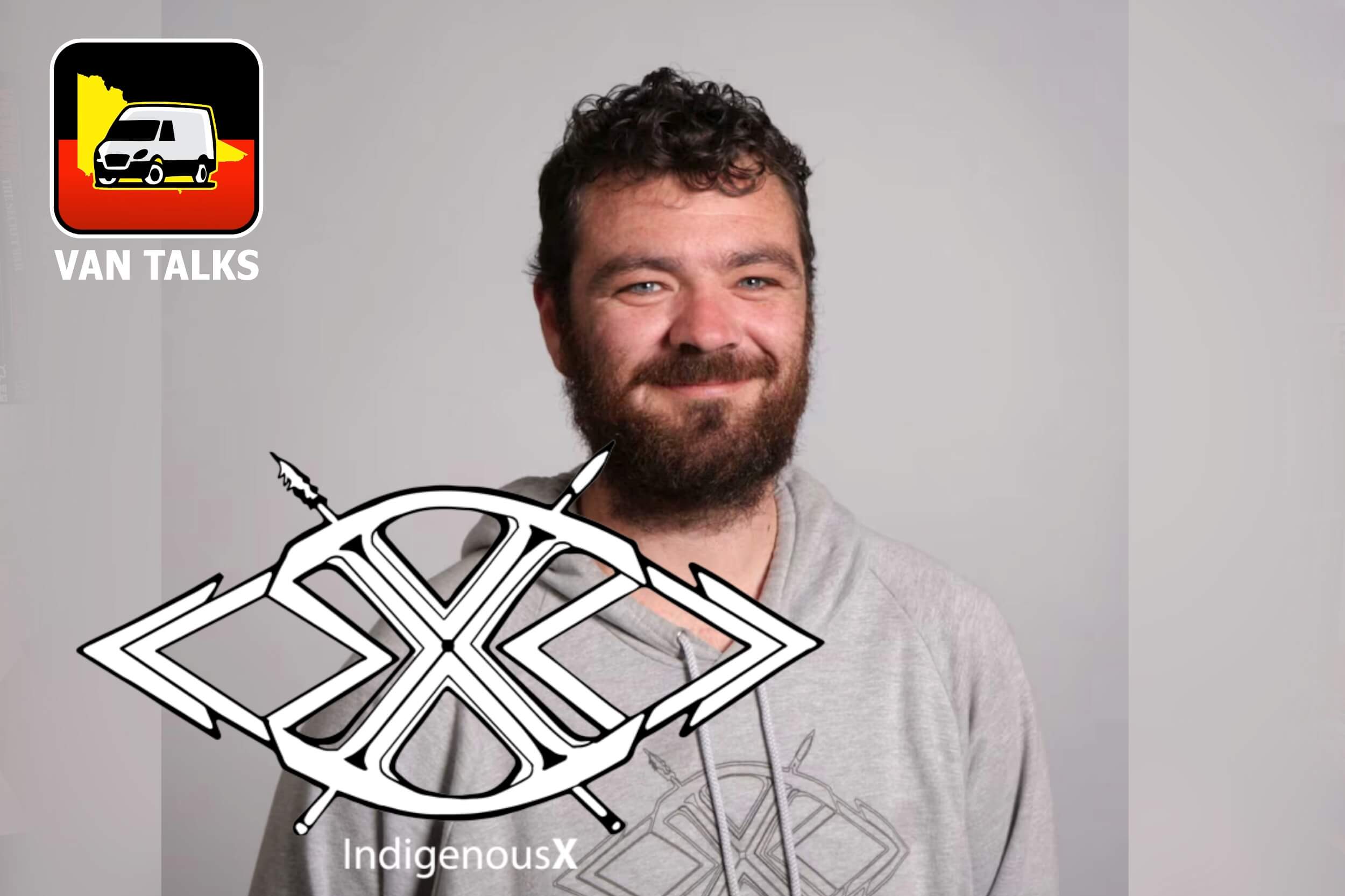
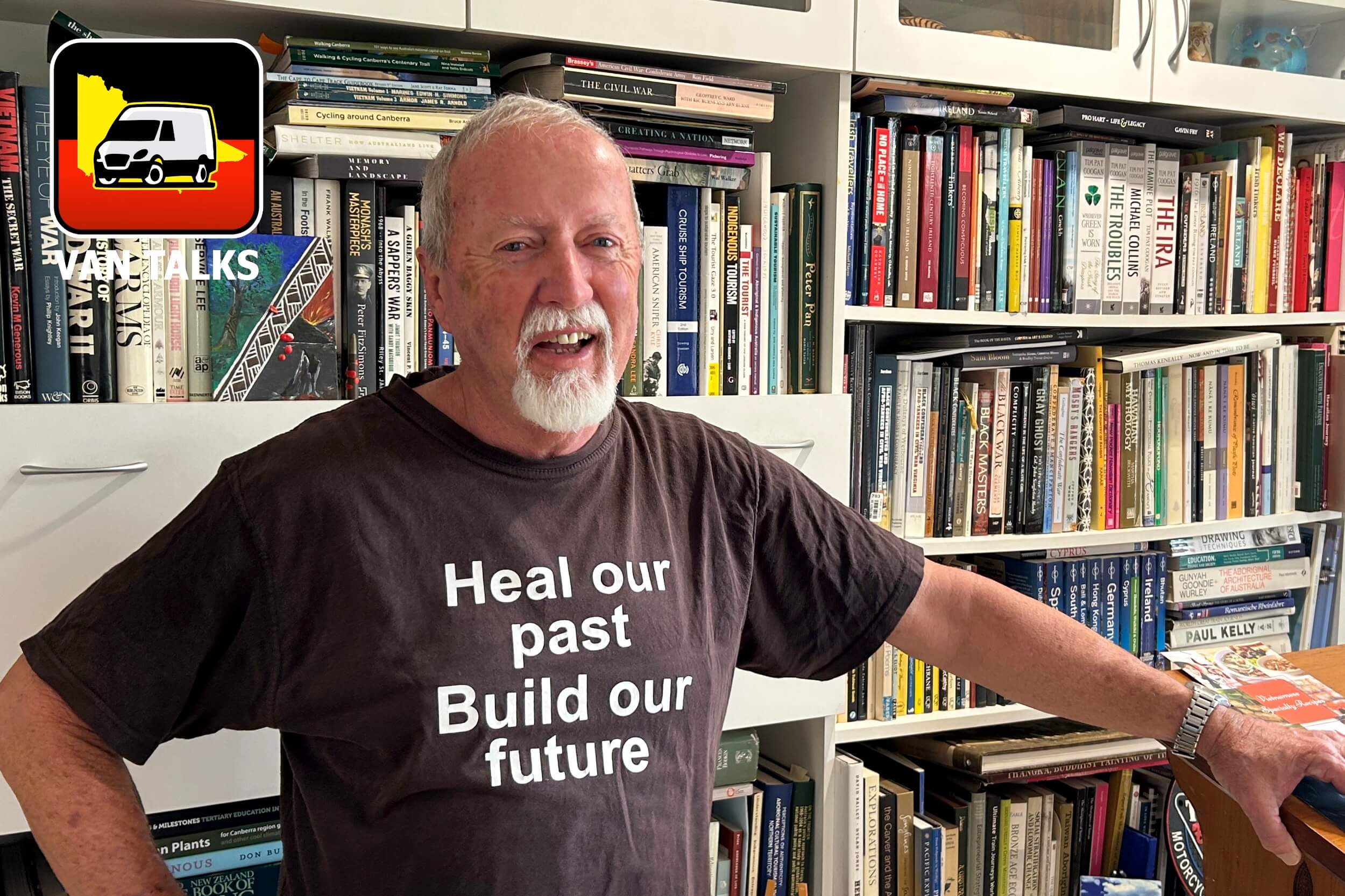
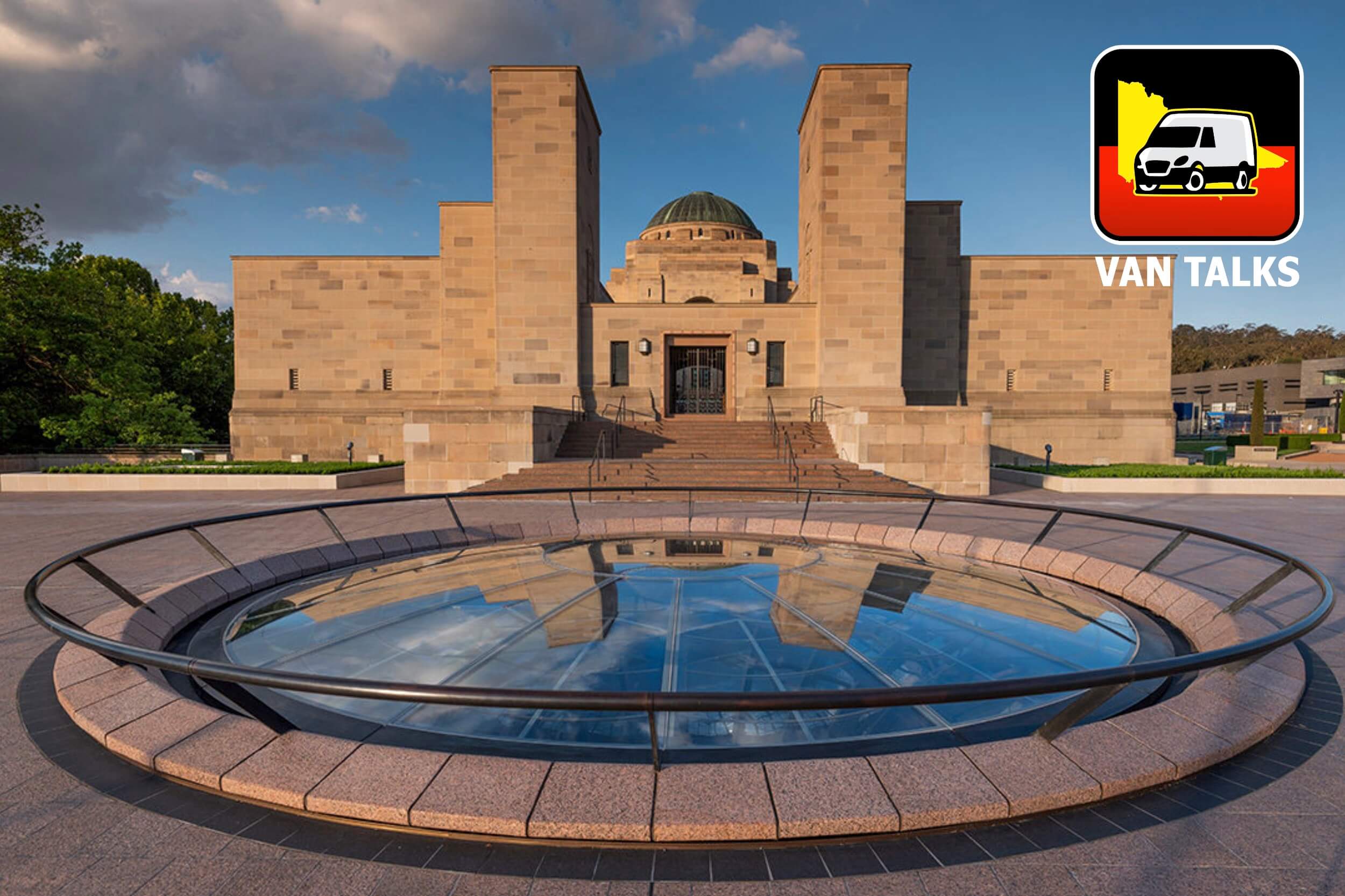
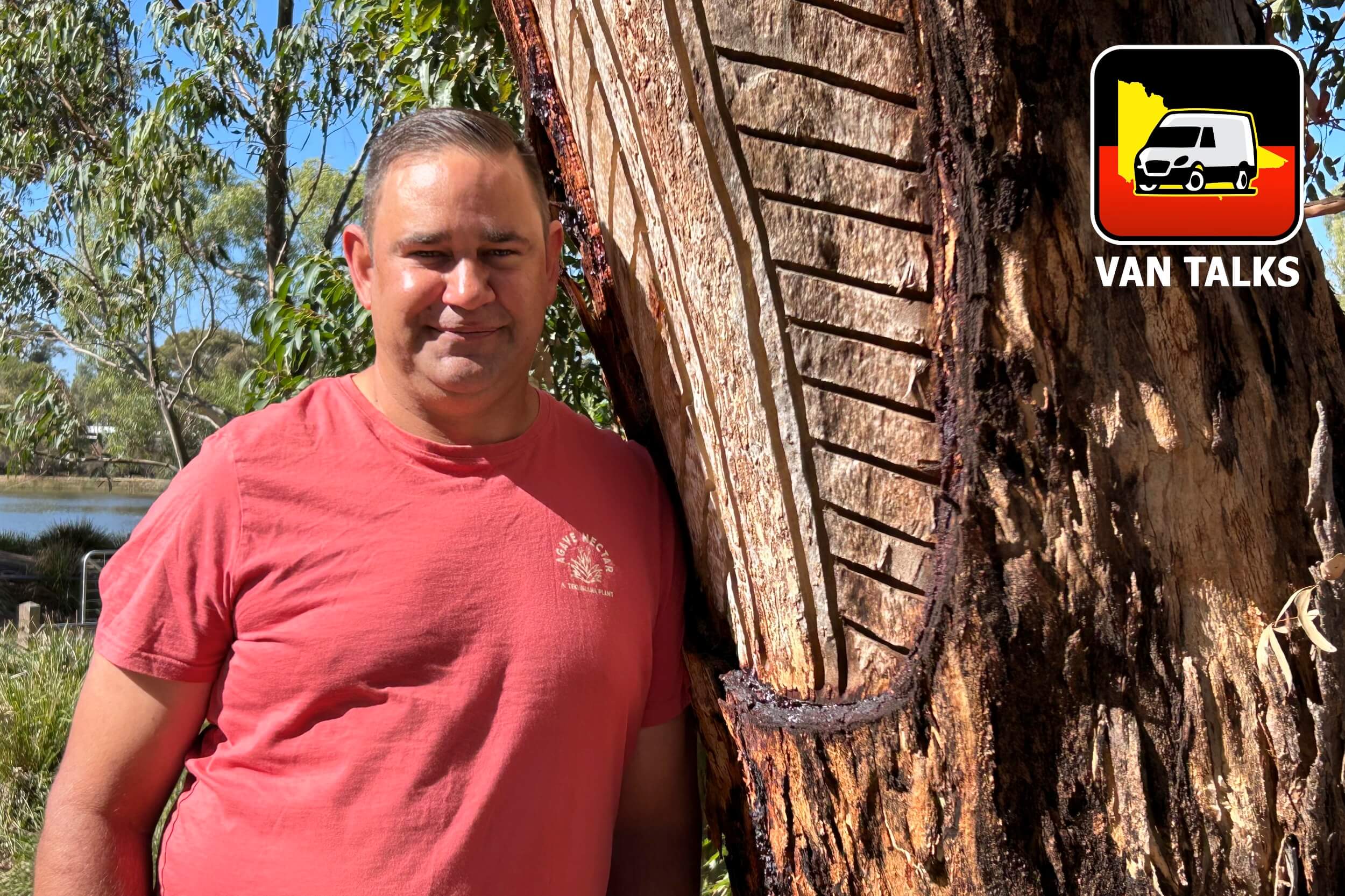
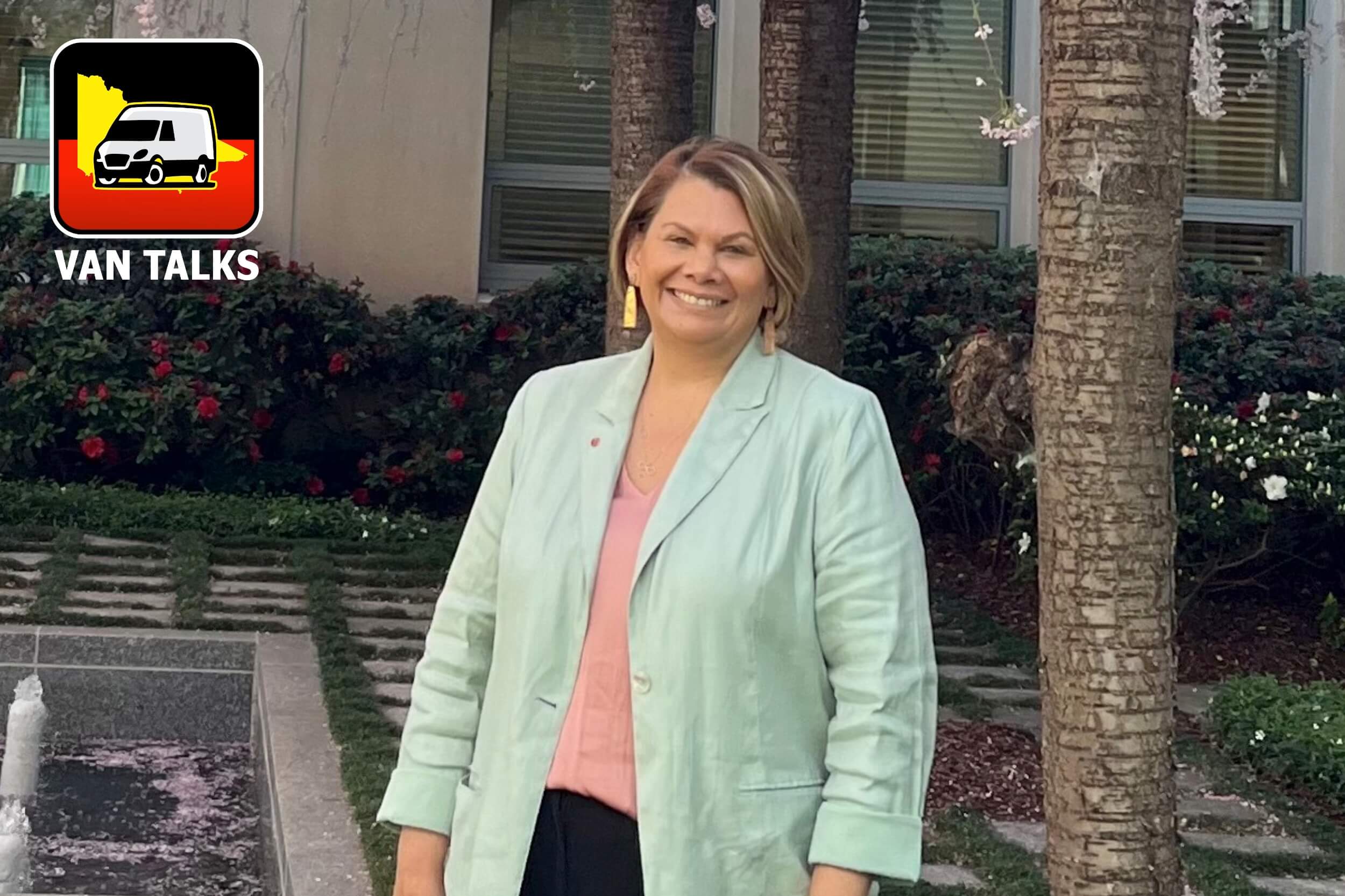

0 Comments